Film: Iron Road (2009)
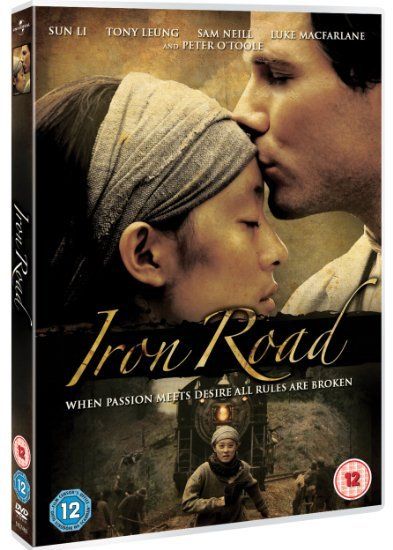
Iron Road was a 2009 Canada/China television miniseries written by Barry Pearson and Raymond Storey and directed by David Wu. Starring Sun Li, Luke Macfarlane, Peter O'Toole, Sam Neill, and Tony Leung Ka Fair, it chronicles the untold story of Chinese workers who helped to build the Canadian Pacific Railway in the 1880s. Chinese labour was used to build the railroad, and later to maintain it. Over 17,000 Chinese came to Canada from 1881 through 1884. Several thousand came from the coastal areas of the United States where they helped build the American transcontinental railroad, but the majority arrived directly from southern China. While most of these arrivals worked as labourers on the railroad, exact numbers are unknown.
The film gives a face to those nameless and voiceless Chinese railroad who left their homeland to come to a country where they were reviled. Many perished and their stories will never be told or recognised. The is the first 'major' film based on a dark era of Chinese-Canadian history at the turn of the late 18th century - although Dan my Canadian husband assures me that all Canadians learn about the significant contribution the Chinese made to the Canadian railway ...
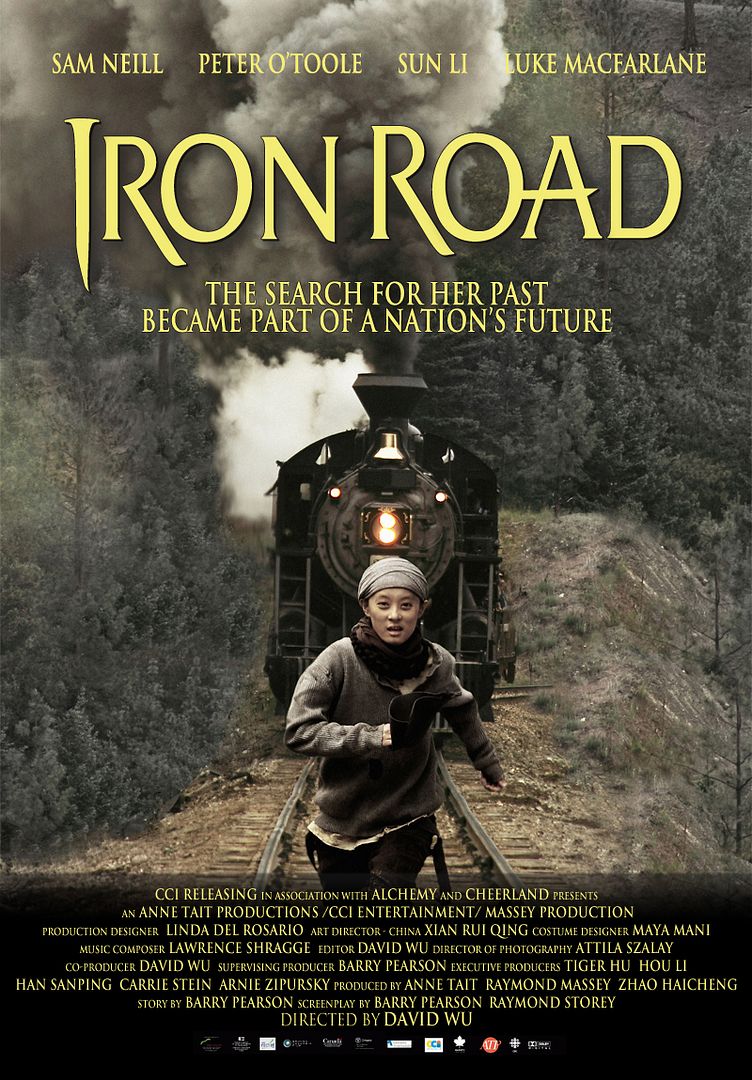
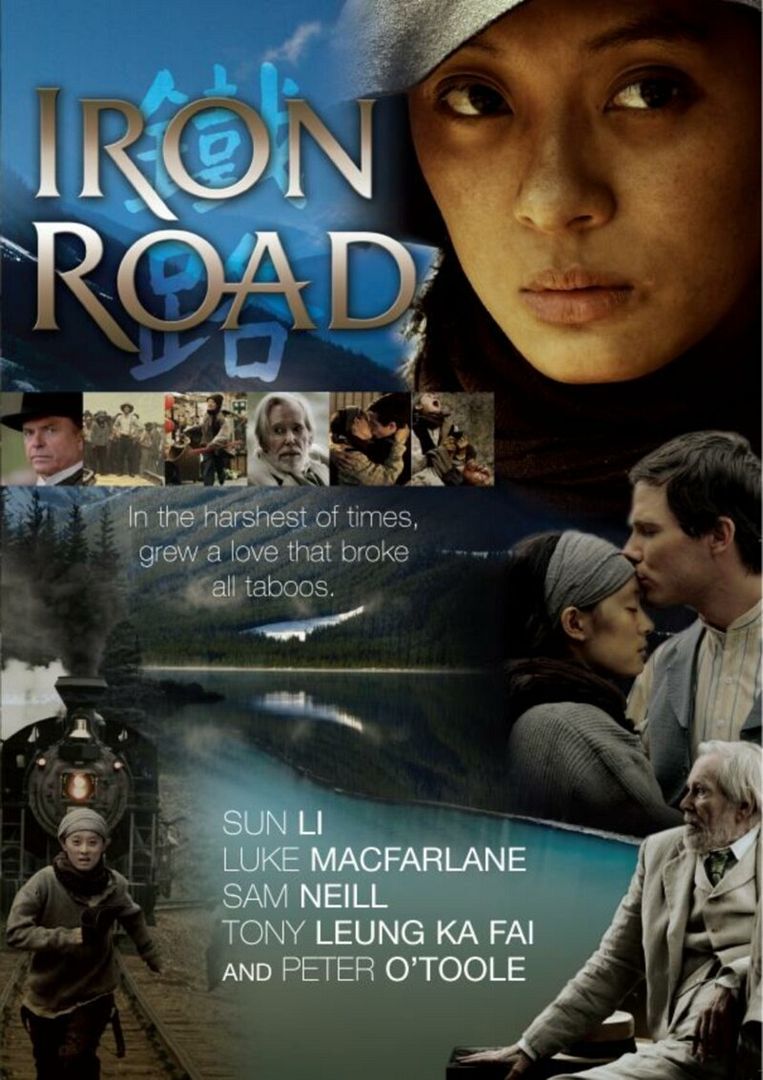
Canadian Businessman Alfred Nichol (Neill) sends his son James (Mcfarlane) to China to bring back 2000 Chinese workers as cheap, manual labourers. If he is unable to complete the new railroad through Canada within two months, he will lose all of his belongings. James' motivation for going is to prove to himself that he can get the job done given that his father has written him off as a worthless, spoiled playboy.
In Meanwhile, in China we are introduced to a young woman named Li Jun (nicknamed "Little Tiger"), who is surviving on her own by pretending to be a boy. Yes this is one of my favourite tropes. I love girls/women dressing up as guys so that they can take on male-dominated activities and hold their own. It's awesome.
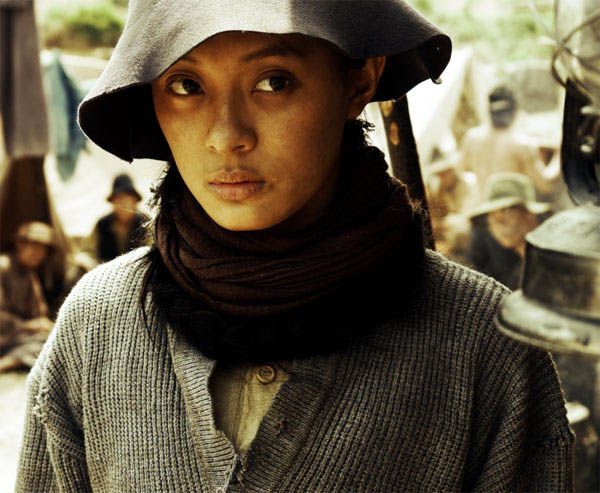
Her dream is to make the long journey to 'Gold Mountain' in Canada, where her father disappeared many years earlier.
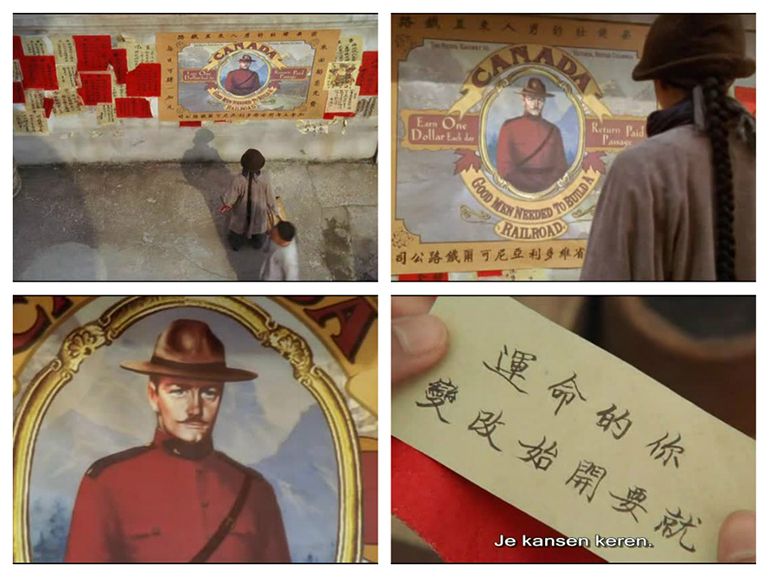
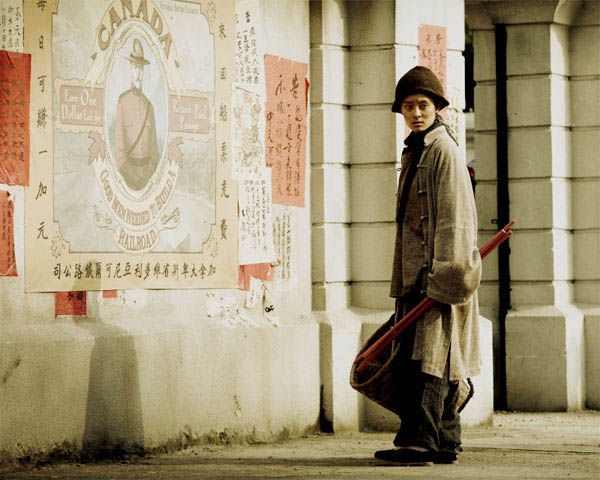
She speaks English, having been taught by an alcoholic Westerner named Relic (played by Peter O'Toole).
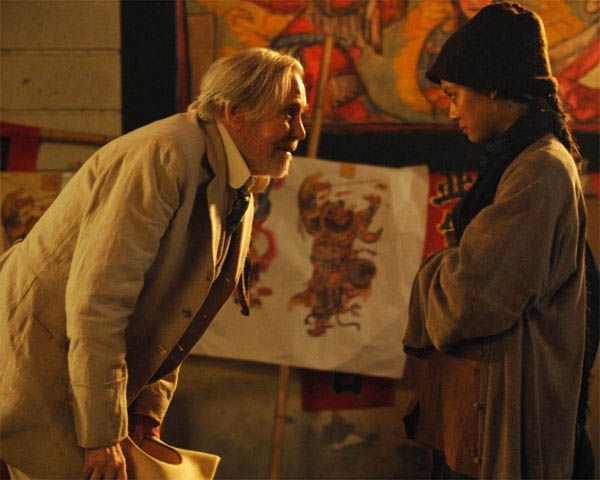
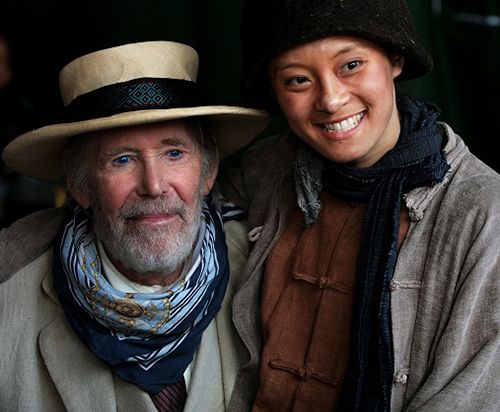
Little Tiger proves very useful to James Nichol in recruiting workers for the trip to Canada, where they are promised that they will be paid a princely sum of $1 a day and that if they find any gold, they can keep it ...
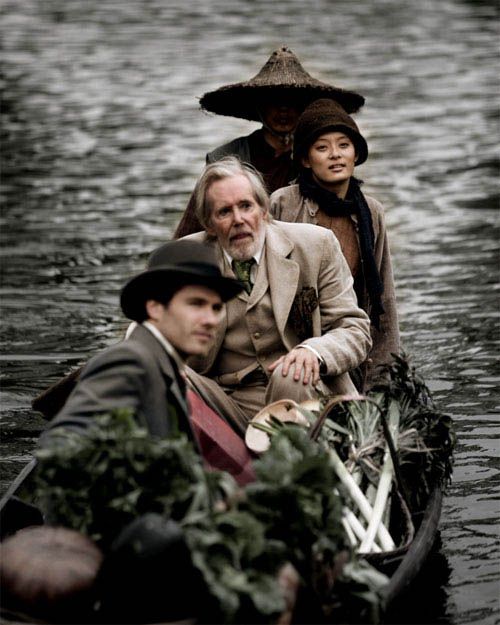
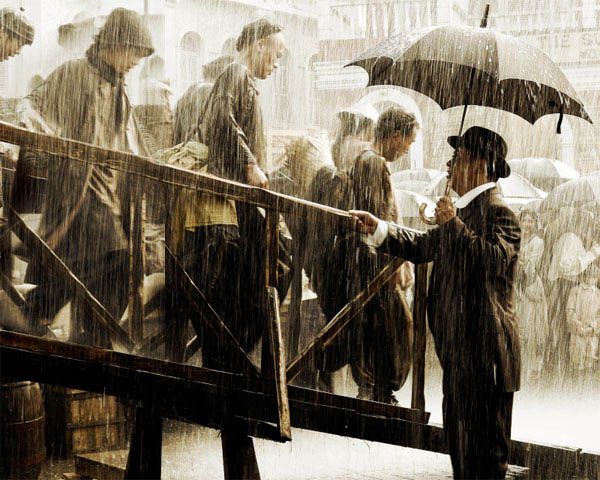
Originally, despite being very grateful to Little Tiger, James is reluctant to bring the young boy back to Canada because he knows that the Chinese are only being told very selective truths. While technically not 'slaves' because they are being paid a very small wage, they are still going to a life that is going to be very hard and filled with exploitation.
Nonetheless, for reasons I can't go into without spoiling, Little Tiger does accompany the other Chinese workers and also James on the long journey across to British Columbia, Canada.
While in Canada, Li Jun slowly earns the respect of James and the men around her with her determination and pluck.
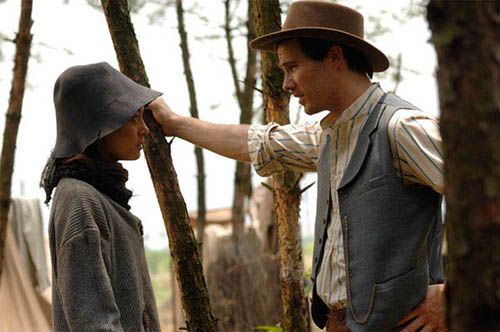
Not all of the Canadian railroad workers are happy with her questions and attitude and she soon finds herself stumbling across corruption and even murder ...
I've read some criticisms that the focus seems more on the blossoming romance between the leads rather than the tragedy of the mistreatment of the workers. I'd disagree with that. There is certainly a lot of screen time given towards the plight of the Chinese labourers but it's only by humanising the story and seeing it through Little Tiger's eyes that you make the audience care. Otherwise it just becomes a documentary about people from a time long ago.
Luke Macfarlane does well as James.
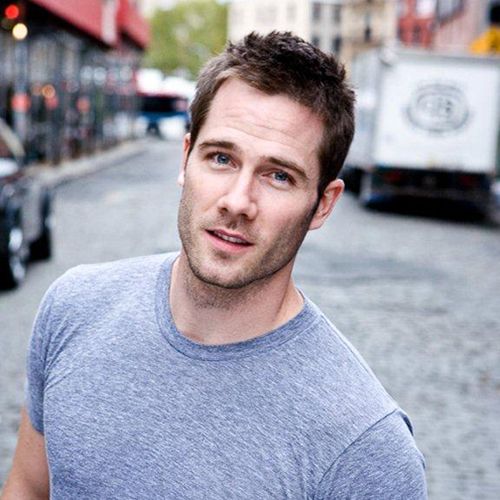
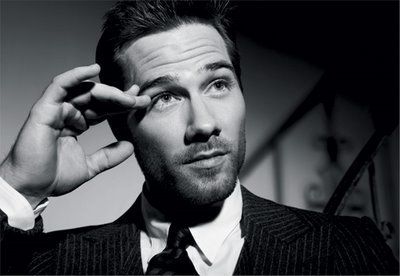
He's likeable and charming and his clueless, fish out of water person from the beginning does not make him an idiot or insensitive.
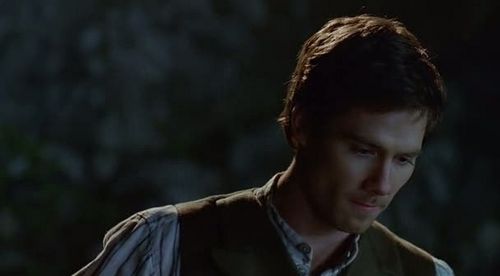
His affections for Little Tiger certainly make him more sympathetic towards the plight of the Chinese but it's not the starting point as we never get a sense that he feels himself to be particular superior or racist towards them, although he necessarily uses the word 'Chinaman' a lot, which made me cringe even though I know that it's a historically accurate term for the time.
Sun Li is also excellent. Understandably - her acting is much more compelling when she's acting in Chinese. She doesn't speak English so all of her English lines are memorised so they are naturally much more stilted, which is also entirely believable given the part she is playing and to be honest, her English delivery is pretty amazing given how many lines she had in English and given she doesn't actually speak the language! Her conversations with her fellow-Chinese workers and in particular with the Bookman are pretty amazing.
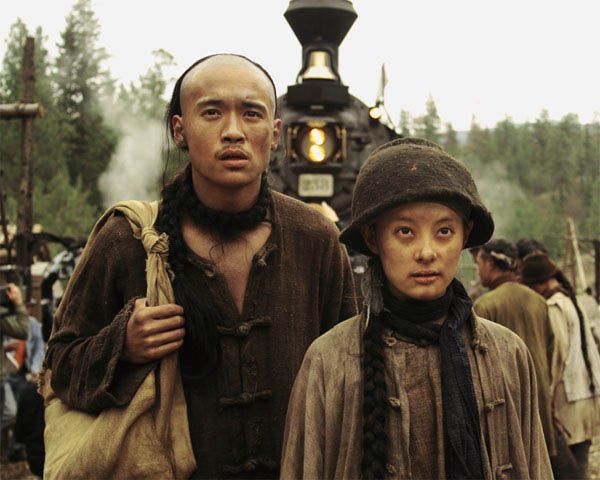
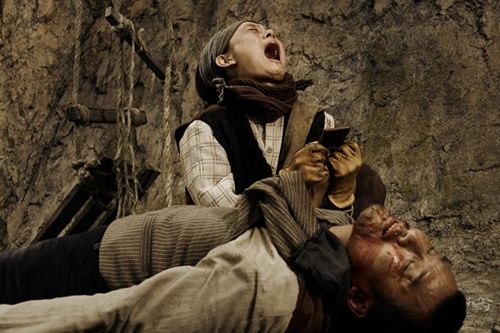
The portrayal of the romance is pretty lovely. It's very much on equal terms and she's as much the initiator of love and affection as he is. It's not all about what he wants.
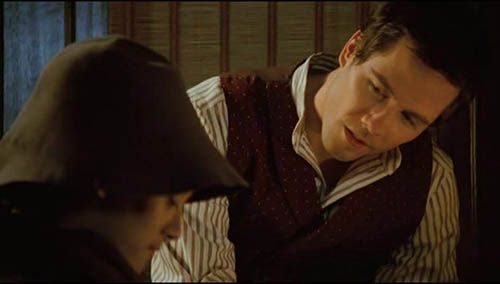
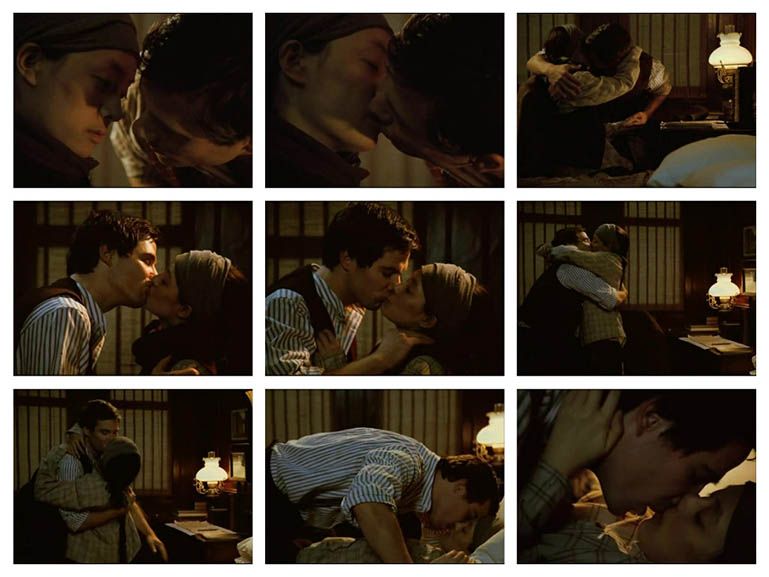
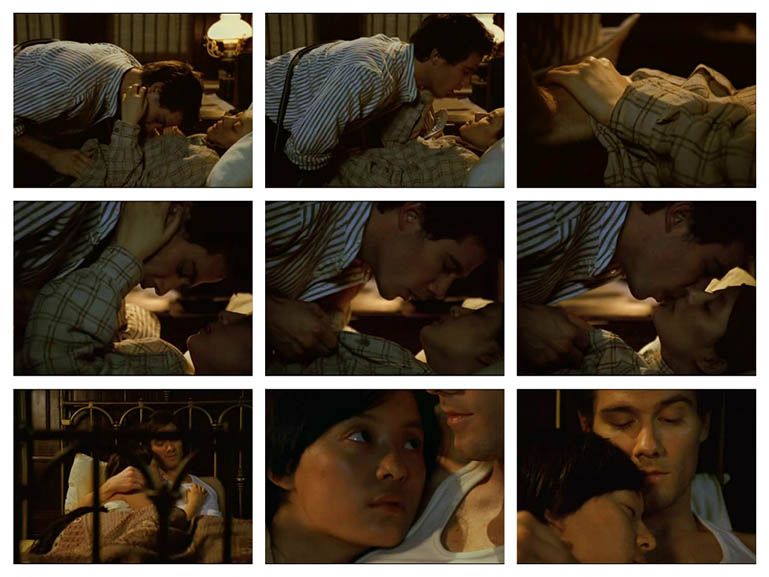
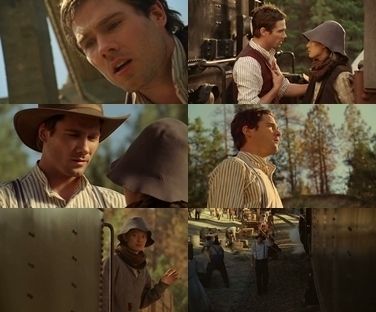
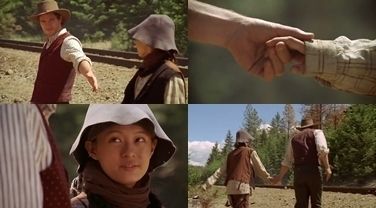
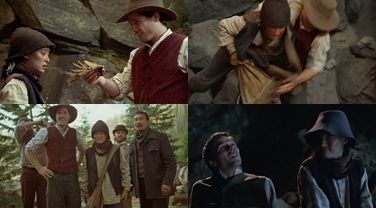
There's a lot of speaking a lot with the eyes and body language.
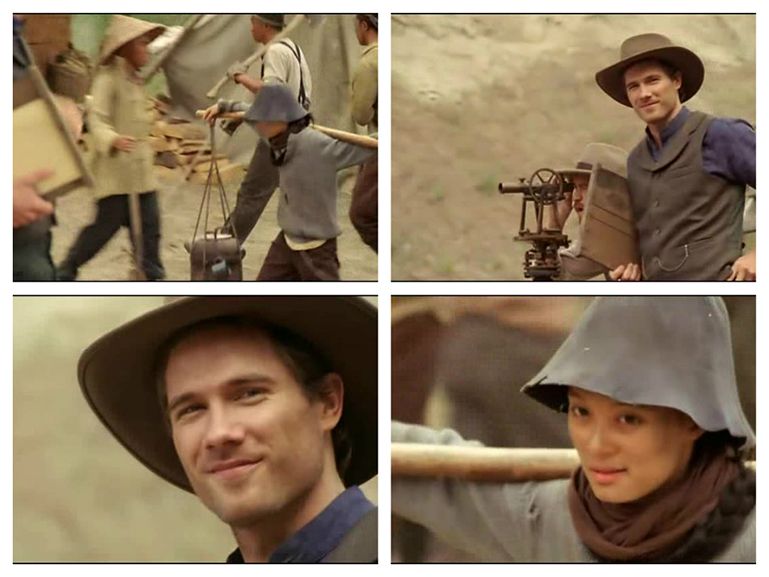
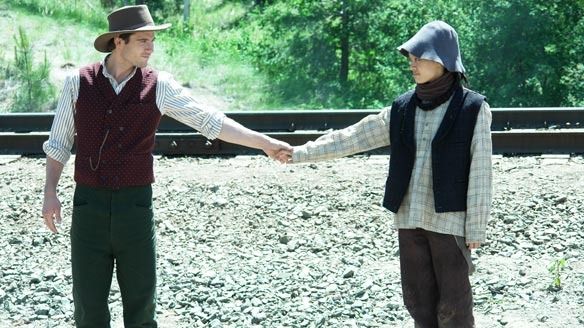
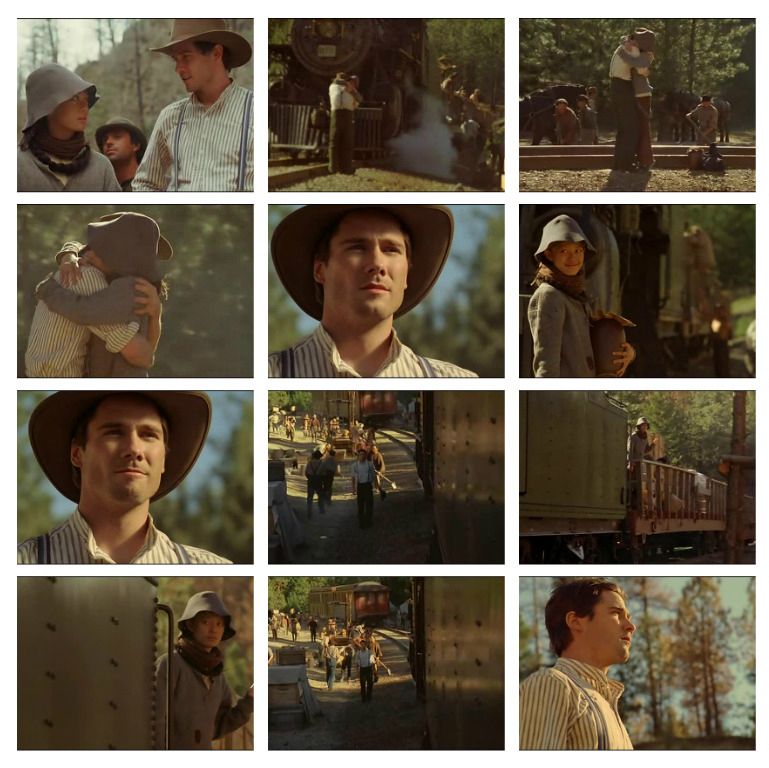
Sun Li is not believable as a man but I can believe her as a young boy especially when you see how glamorous and pretty she is in real life.



Here's her in-movie transformation from boy to girl
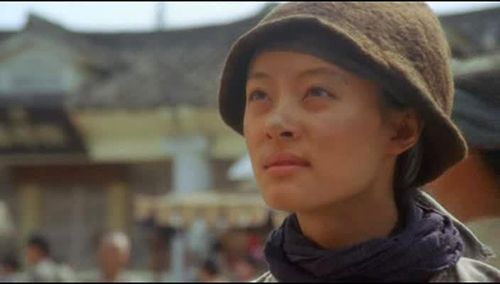
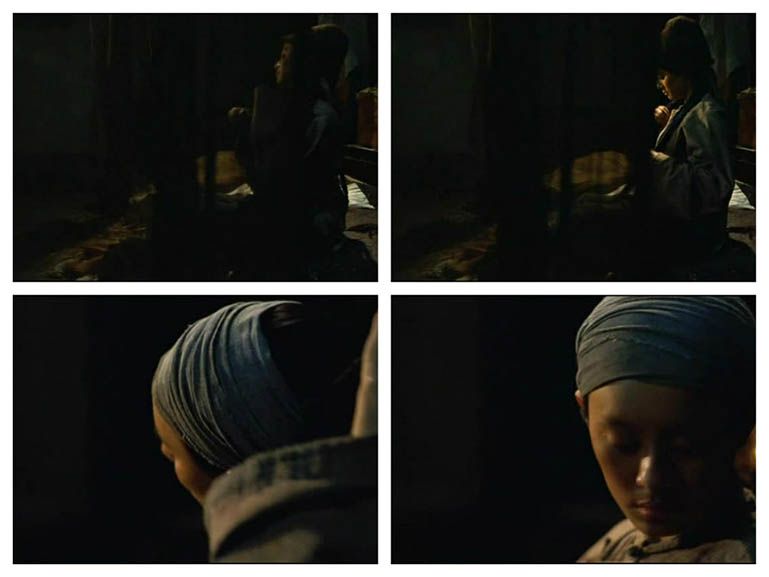
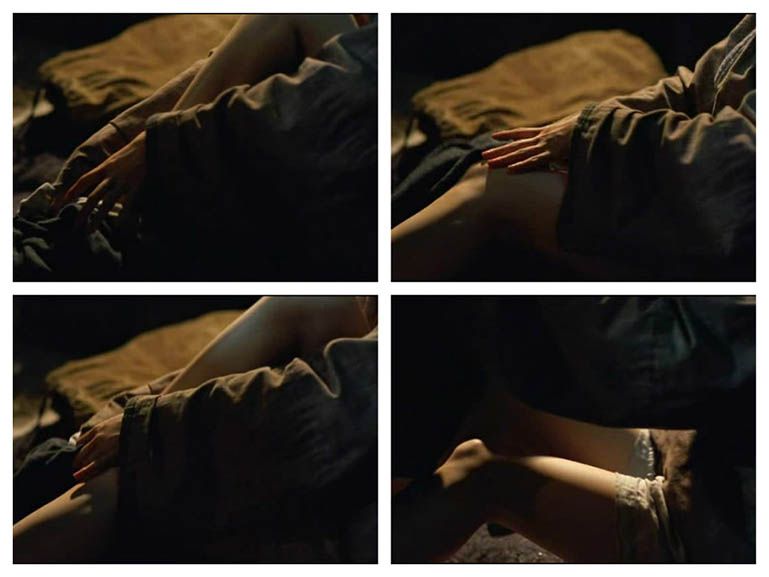
A Chinese review at baidu questioned why James would be attracted to Little Tiger over Melanie Grant (played by Charlotte Sullivan from Rookie Blue).
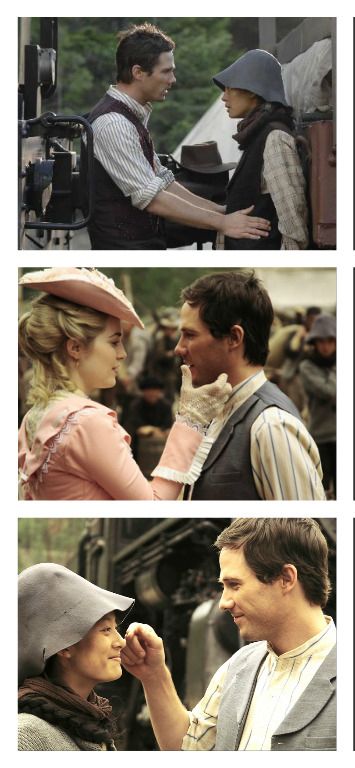
Personally, I don't find it much of a stress. James was attracted to Melanie, she very much belonged in his world and his past, superficial life. After going to China, he became friends with Little Tiger in a way he never was with Melanie, Little Tiger opened his eyes to new experiences and perspectives and he fell in love with her on an emotional, intellectual as well as physical level. With Melanie, I suspect it was only ever quite physical.
The Li Jun-James relationship was much deeper, although difficult and doomed (from her perspective not his).
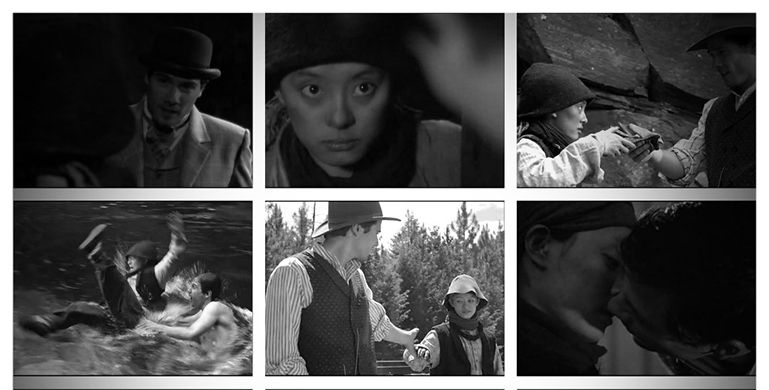
The crew of the movie spent 31 days filming in "Chinawood," Hengdian World Studios, five hours from Shanghai. They also shot for 10 days across in Kamloops, Kelowna and Lynn Canyon, B.C.
Some links for those are are interested in reading more:
- The Ties that Bind: Chinese Railroad Workers
- wikipedia: History of Chinese immigration to Canada
- Why the Chinese came to Canada
- A brief Chronology of Chinese Canadian History: From Segregation to Integration
- Chinese Canadian ... Since 1858
- Chinese Canadians
- The Road Chosen: Chinese Immigration
- Chinese-Canadian history
- Chinese immigration to Canada: a tale of perseverance
- British Columbia apologises for historical discrimination against Chinese immigrants
- coming over for economic reasons
- doing jobs that white people didn't want to do
- resented for working for cheap but with no access to unions that would mandate a minimum wage i.e. they were blamed for things beyond their control
- legislation was passed to make it harder for them to immigrate, condemning many to very, very lonely lives as they were unable to bring their families with them
- horrific discrimination. As they flourished economically, this created greater resentment
- regarded as non-human and so had no human rights
- eventually recognised as human beings and given full citizenship rights. See this news article here about how Chinese-Canadians only got the vote in 1947 even though they were expected to fight during World War II on behalf of Canada...
Wikipedia: "Gold Mountain (Chinese: 金山) is the name given by the Chinese to western regions of North America, particularly California, USA and British Columbia, Canada. After gold was found in the Sierra Nevada in 1848, thousands of Chinese from Toisan in Guangdong, began to travel to California in search of gold and riches during the California Gold Rush.
The Chinese continue to refer to California and British Columbia as Gold Mountain, as evidenced by maps and returned Overseas Chinese. However, because gold was also discovered in Australia (and there was a great sojourning there, too) - California was known as Old Gold Mountain (Chinese: 舊金山); although "Old Gold Mountain" now specifically refers to San Francisco."
Such a fascinating period of history.